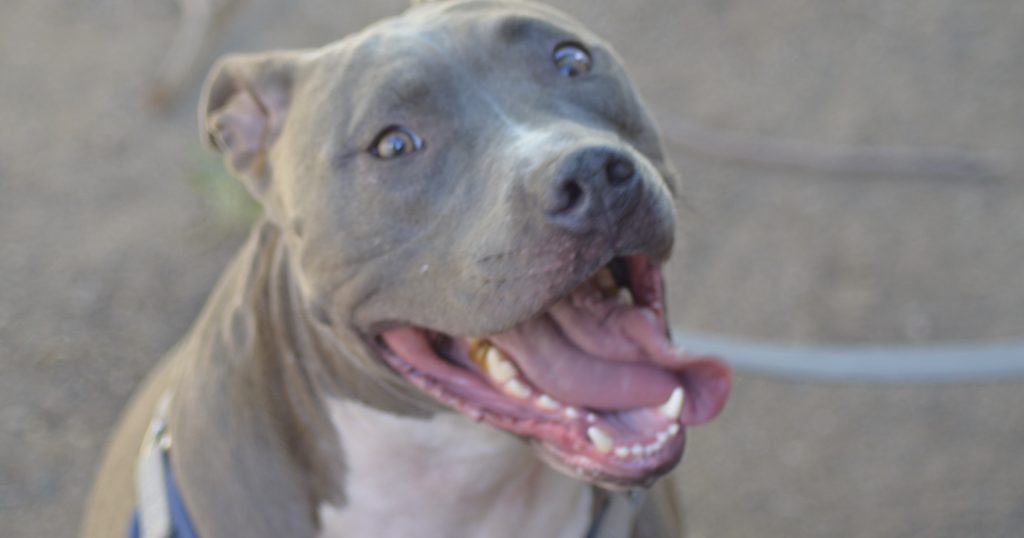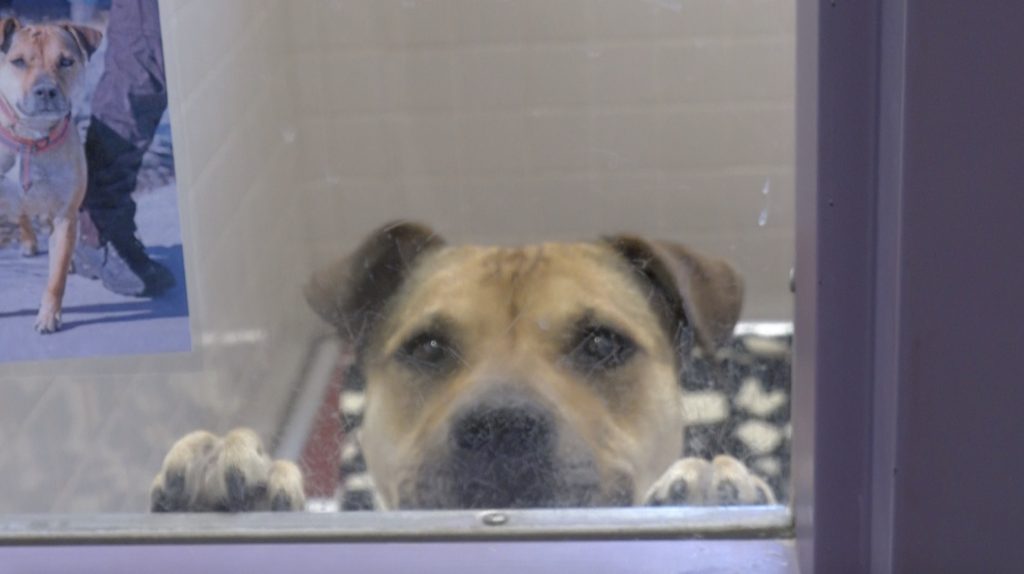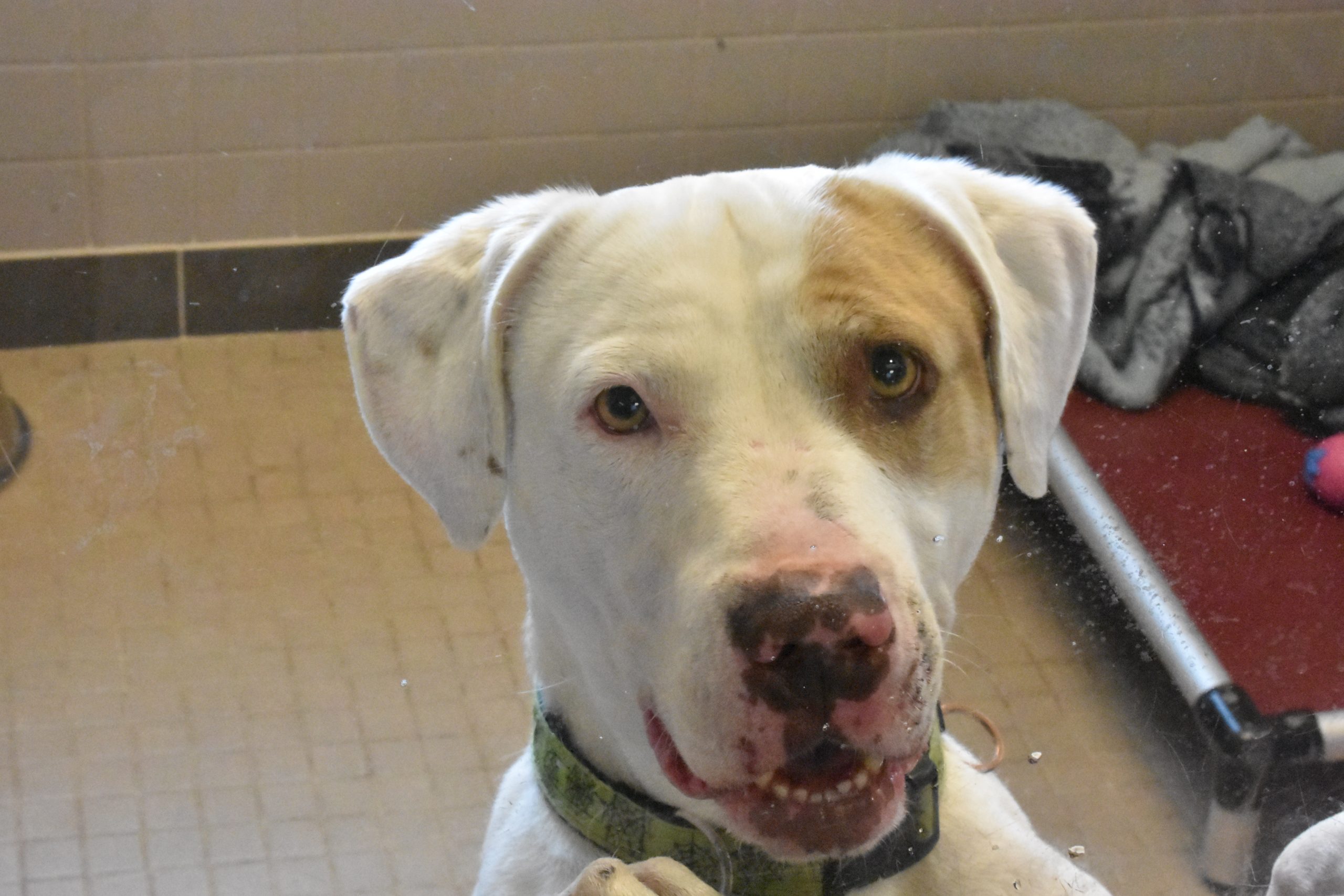A large head, stocky chest and cropped ears can be the difference between a life with a loving family or months or years in an animal shelter. Such is the plight of the pit bull.

According to the ASPCA, 3.3 million dogs are surrendered to shelters across in the United States each year, of which 1.6 million are adopted. Hundreds of thousands of those dogs are pit bulls. 40% of pitbulls taken to shelters are euthanized.
Ellen Schmidt, senior director of outreach and volunteer programs and certified professional dog trainer at the Animal Humane New Mexico is working to change the public perception of pitbulls. Her campaign includes training for children and dog owners, and the creation of the 505 Pit Crew, a pit bull specific training resource.
“What it aimed at doing was two things, helping educate school aged children here in New Mexico about one of the things that’s associated with pitbulls that’s most detrimental, which is dog fighting,” Schmidt said. “The other side was providing a really easy-to-access training resource for families that owned a pitbull type dog.”
Schmidt explained that the public can sometimes associate pit bull type dogs with dog fighting and that it is important to end the stigma in order to get more pit bull type dogs into caring and loving homes.
“Dog fighting is an issue all across the United States and it’s interesting to look at here in New Mexico… it’s not an issue that happens in one neighborhood versus another,” Schmidt said.
“The root of it is that it’s a blood sport by betting on animals to do that most damage they possibly can.”
Dog fighting is illegal. The American Society for the Prevention of Cruelty to Animals (ASPCA) said that dog fighting relies on the abuse of dogs often bred and trained since puppyhood to attack each other until one of the dogs can no longer fight, resulting in serious injury, trauma, and death.
“Anytime a person is involved in a sport that is going to cause physical harm to another, animal or humane, it can cause issues for those individuals exposed to it becoming more and more immune to emotional feelings of regret or sorrow or sadness, or empathy.” Schmidt said.
“That’s our big word in humane education. And that ends up having a trickling down effect for the rest of the community.”
Derick Robertson said he adopted his first pitbull in 2015, and was not entirely sure he had made a safe choice.
“I adopted her and was kind of nervous because of what you hear about pitbulls. I knew she was a good dog, but it was something that was really hard to ignore,” said Robertson. “We put her in training right away and I knew as soon as we started that everything I had been told about how dangerous they were, was wrong.”
Robertson says other people still jump to conclusions about his dog. It’s even made it hard to find a place to live.
“I haven’t found a place that doesn’t have some sort of specific ban about pit bulls, and sometimes even other dogs like German Shepards or some of the other supposedly aggressive breeds,” Robertson said.
With the creation of canine DNA tests, animal welfare workers have found that dogs previously deemed pit bull type dogs were nothing of the sort, which has caused some shelters to rethink including breed in the dogs description.
“First of all, the dogs that most people think of as pitbulls are often just mixed breed dogs… But we call them pitbulls because of the way they look,” Schmidt said. “When I say pitbull, I always note that I’m talking about something that has a blocky head, a muscular chest and a short coat, something that an average member of the public is going to see and say ‘I think that’s a pitbull.’”

Animal humane advocates seem to face many challenges that surround the efforts put forth to end discrimination towards pit bull type dogs, and one such problem is the collection of data.
According to Schmidt, often times the reports collected after a dog bite is done so by either the person who was bit, or a first responder. If the person filing the report about a dog bite has a bias, which can be present without the person even knowing, it is likely to affect the way they describe the dog.
“When you say pitbull here in the United States, that could mean so many different things,” said Schmidt. “As soon as we started analyzing dogs that looked like pitbulls, oh man. You could have a dog who looks like a pit bull who doesn’t have a trace of bully breed in their DNA.”
Robertson describes adopting his dog as one of the best things that has ever happened to him and urges others to rethink what is believed about pit bull type dogs.
“I wish people would see that they really are great family dogs. Popsicle has changed the way I see the breed entirely and I think they’ll probably be the only type of dog I ever have,” Robertson said.
Mikayla Nowell is a reporter for the New Mexico News Port. She can be contacted on Twitter @mikaylaanowell.
Kaylee Trainum is a reporter for the New Mexico News Port. She can be contacted on Twitter @kaylee_trainum.
